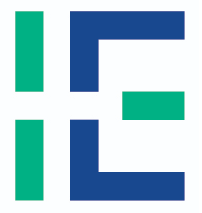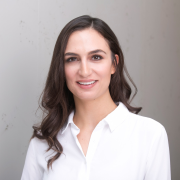Meet Elif Kuecuektas, a Rehabilitation Engineer who uses technology and empathy to create meaningful change. She shares with us how she cultivates successful client partnerships in co-design efforts.
Please tell us a little bit about yourself
I was born and raised in Berlin, Germany, where I studied mechanical and biomedical engineering. My professional journey has been diverse, ranging from working in R&D in large corporations to joining an early-stage startup, where I was attracted by the sense of responsibility and the opportunity to shape the company's trajectory. I have also worked in government and management consulting. I am very much drawn to creating meaningful impact and roles that allow me to play a pivotal role. Recently, I made the move to Australia, and I must say, I am loving it here. Besides my professional pursuits, I am very outdoorsy. I love the feeling of the sun on my skin even though I do my very best to block it (SPF50 all day, every day!).
What excites you most about your role as Rehabilitation Engineer?
Working as a Rehabilitation Engineer excites me for several reasons. I have the opportunity to contribute to a fairer world, which is something I deeply care about. My work involves a mix of technical tasks and medical know-how, making each day diverse and engaging. It's fulfilling to know that what I do directly impacts people who truly need it. The best part is being able to personally hand-deliver the products I create to those who use them. And on top of that, I'm always learning new rapid prototyping techniques, which keeps my job both challenging and enjoyable.
Co-designing with clients is an important part of your work. Can you share some insights on how you nurture and cultivate successful partnerships?
In any project, the key lies in building and maintaining strong, meaningful relationships, and this principle holds true for our work as well. Clear, transparent, and regular communication, conducted with respect, forms the cornerstone of these relationships. It's crucial to recognize the importance of the emotional bank account, which highlights the significance of nurturing positive interactions in building and maintaining strong relationships.
What do you think enables projects and innovations to succeed in the health technology space?
Several key factors come into play. Understanding market needs and available funding opportunities is vital. The health tech space is special, that is why a deep understanding of the medical device industry, regulations and the need for appropriate quality management systems, is equally important. The personal attributes of founders, including resilience, determination, pragmatism, and a realistic approach, are crucial. Just like with other endeavours you also need a good network, timing and luck! Lastly, it's crucial to understand that while the initial idea holds weight, it's the execution that ultimately shapes the outcome. Also, trust your gut!
Do you have any resources or links to networks that you would like to share with readers?
For those looking to turn their health innovation idea into reality, I would highly recommend checking out these websites:
Innovation at IHealthE https://www.ihealthe.unsw.edu.au/innovation
UNSW Founders https://unswfounders.com/overview
I would recommend Franklin Women (https://franklinwomen.com.au) to women in the health ecosystem who are looking for a supportive network.
And last but not least, I would encourage you to keep an eye out for updates from the Assistive Tech Hub. There is a lot happening behind the scenes at the moment!

